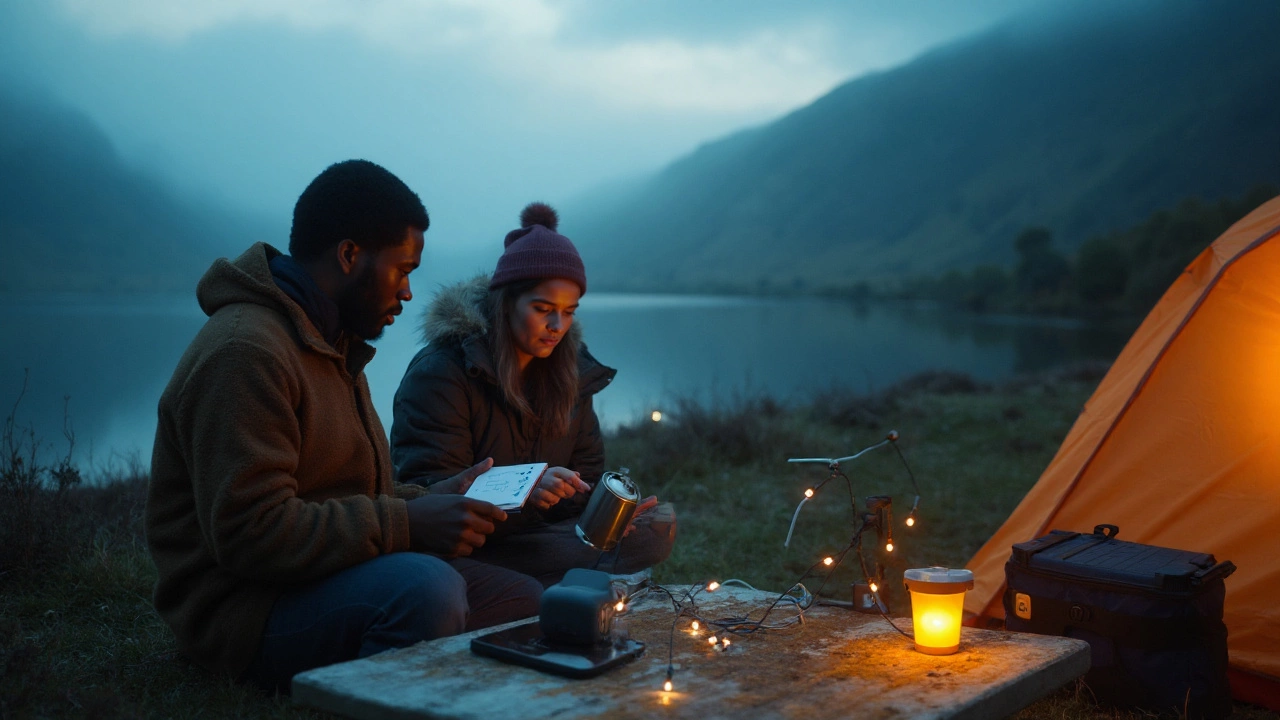Solar Generators for Motorhome Adventures in Nottingham
If you love the freedom of a motorhome but hate the hassle of finding a power hookup, a solar generator might be the answer. It’s a compact box that turns sunlight into electricity, so you can run lights, a fridge, or your phone charger wherever you park.
Most motorhome owners think solar means big panels and complex wiring, but modern generators are plug‑and‑play. You set up a small fold‑out panel, plug the generator into the battery, and the system takes care of the rest. It’s as easy as using a portable charger for your phone.
Why Choose a Solar Generator?
First, solar power is quiet. No noisy diesel engine rattling around your campsite means you’ll sleep better and keep the peace with neighbours. Second, it’s clean. You won’t be burning fuel or releasing fumes, which is a win for the environment and for the strict emission rules at some UK campsites.
Third, you’re not tied to a grid. In Nottingham’s beautiful countryside, you’ll often find spots with limited or no electricity. A solar generator lets you stay off‑grid without sacrificing comforts like a fridge or a laptop.
Finally, the cost adds up. A one‑time purchase of a good solar generator saves you money on fuel and campsite electricity fees. Over a few months of trips, the savings can cover the initial price.
Choosing the Right Model for Your Motorhome
Start by checking the power you need. A basic setup—like lights, phone chargers, and a small fan—might only require 200‑300 watts. If you want a larger fridge or a heater, look for 500‑800 watts.
Next, look at battery capacity. Many generators come with built‑in lithium batteries. A 500 Wh battery can run a 50‑watt fridge for about ten hours. If you plan long stays without sun, a larger battery or an extra panel will be useful.
Portability matters too. Fold‑out panels that pack into a backpack are ideal for motorhomes with limited roof space. Some models even have a built‑in inverter, so you can plug in standard 230 V appliances directly.
Finally, read reviews from other UK campers. Look for models that handle the damp British weather well—water‑resistant panels and robust casing make a big difference.
Popular choices for UK motorhome owners include the Jackery Explorer 500, the EcoFlow River Pro, and the Bluetti AC200P. All three offer a good mix of wattage, battery size, and easy setup.
When you buy, consider the warranty and the availability of spare parts in the UK. A two‑year warranty with a local service centre will save you headaches later.
Installation is simple. Unfold the panels, point them toward the sun, connect the cable to the generator, and then plug the generator into your motorhome’s 12 V socket or directly to the battery. Most generators have an LCD screen that shows input power, battery level, and remaining run time.
Keep the panels clean. A quick wipe with a damp cloth removes dust and bird droppings that can cut efficiency. If you’re parked under trees, move the panels to an open spot for a few minutes each day to keep them sunny.
Using a solar generator also means you can be more flexible with your campsite choices. No need to hunt for a powered site in Nottingham’s popular locations like Sherwood Forest or the Peak District. You can park at a free wild‑camping spot, enjoy the scenery, and still have power for your fridge and lights.
In short, a solar generator gives you quiet, clean, and affordable power on the road. Pick a model that matches your energy needs, protect the panels, and you’ll have a reliable source of electricity for every Nottingham adventure.
